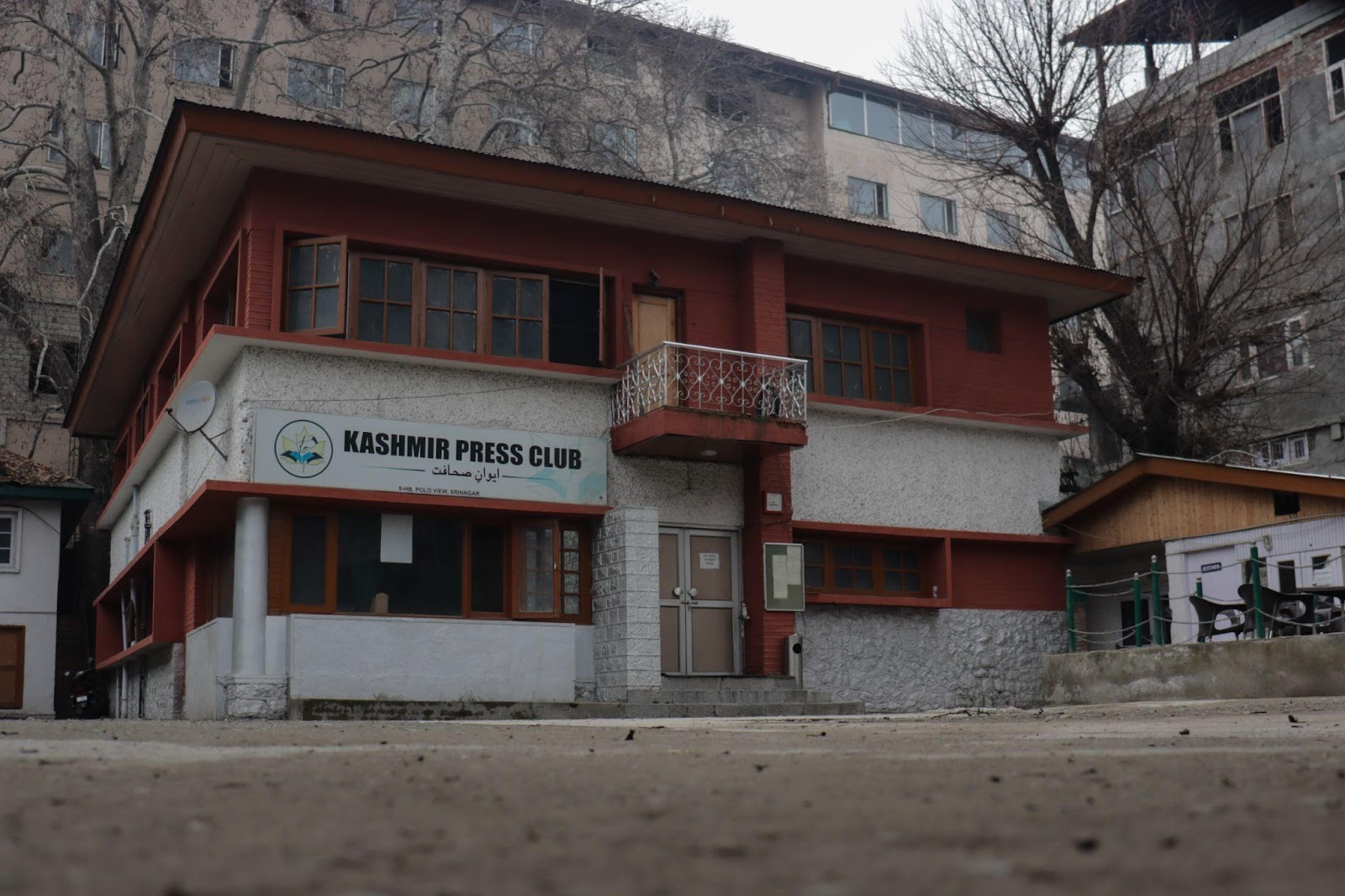Kashmir Without a Press Club
‘Illegal and arbitrary’
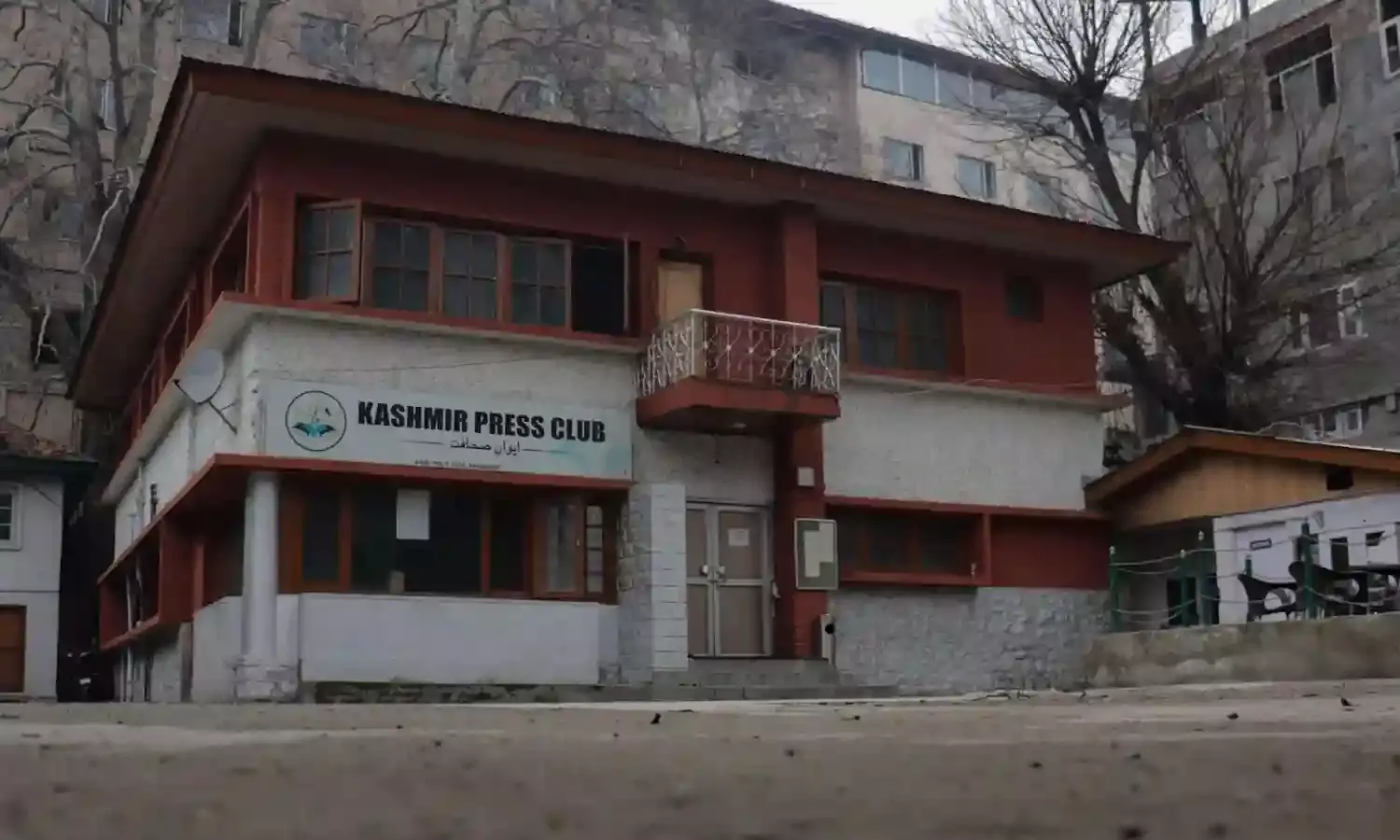
SRINAGAR: On January 15 a group of “journalists” accompanied by armed personnel entered the Kashmir Press Club.
Nobody had predicted what was about to unfold.
Armed personnel wearing green and black barged into the Kashmir Press Club.
Accompanied by soldiers, Saleem Pandit, who works at the Times of India, along with a few other journalists, arbitrarily took over the press club and formed an interim body.
Soon after, the interim body announced that they had taken over the club and would be managing it.
They accused the existing body of postponing internal elections for unknown reasons.
“The elected body served its tenure for a period of two years, which ended on July 14, 2021. The club was headless for around six months, putting the media fraternity into unwanted trouble,” the new faction said in a statement.
Ten days prior the Srinagar Additional District Magistrate had reportedly issued an order putting on hold the “re-registration” clearance given to the Press Club on December 29 by the Registrar of Societies and Firms in Jammu and Kashmir.
The violent takeover was strongly condemned by journalist bodies, politicians and scribes across the country.
“This is such an unethical move. They took over the Club in a ‘renegade’ style in presence of armed troops. The interim body including ‘suspended members’ took over the club by force in broad daylight,” said senior journalist Gowhar Geelani.
BBC correspondent Riyaz Masroor strongly opposed the move and demanded the authorities to look into the matter.
“It wasn’t just a club. It was an institution. It had a sense of belonging, like a second home to journalists out there. Now that the Press Club is locked, they feel homeless,” he said.
Omar Abdullah, the former CM of Jammu and Kashmir, in a statement condemning the move termed the takeover a “state-sponsored coup”.
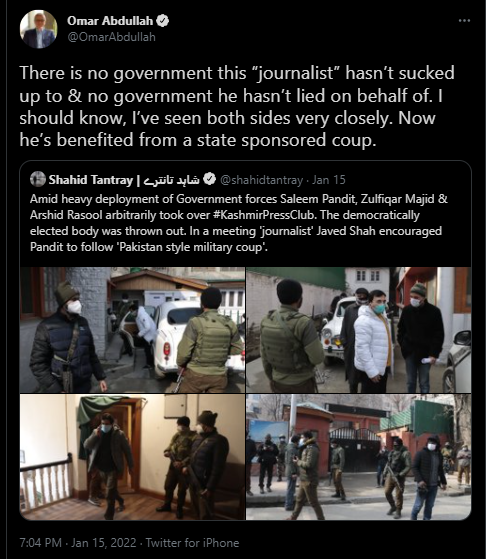
The Editors Guild of India in a statement January 16 called the “armed takeover” by “self-declared management” a “violation of the sanctity of the club” and a “manifestation of the continuing alists have been left stunned by the decision.trend to smother press freedom in the state”.
Demanding an independent inquiry into how armed forces entered the press institution it added, “Even more disturbingly, the state police entered the premises without any due warrant or paperwork, and have therefore been brazenly complicit in this coup”.
In a statement January 18 the Guild citing the murder of Rising Kashmir editor Shujaat Bukhari and state action against journalists Masrat Zahra, Fahad Shah, Sajad Gul and the Kashmir Times added:
“In a state ridden with such excesses against media, Kashmir Press Club was an important institution for fighting for protection and rights of journalists. It also remained open through the lockdown, giving journalists access to important facilities like the internet for filing their work, as well as workshops for training of young journalists. The shutting down of the Club therefore sets a dangerous precedent for media freedom.”
Saleem Pandit’s press club membership was revoked by the KPC authorities in November 2019 for “bringing disrepute” to the media fraternity after he reported for the Times of India claims by a nameless NIA official that the editor of a prominent English daily had “close connections to terror outfit Lashkar-e-Taiba and has hired known ‘jihadi journalists’ to write for his newspaper.”
Two days after the takeover, the club was locked down and no member was allowed to enter the premises.
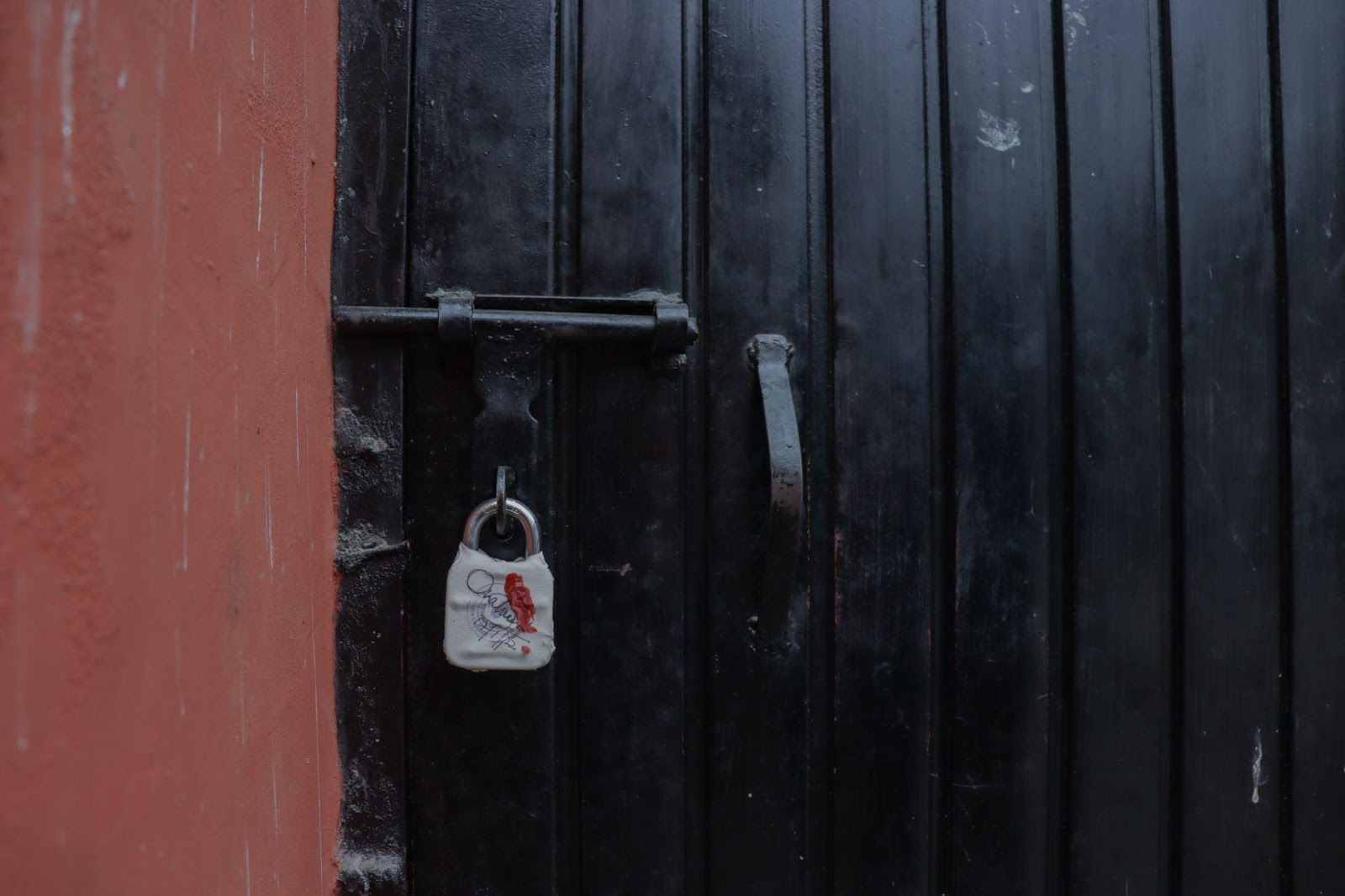
Freelance journalists have been left stunned by the decision.
“It was such a lively environment. People used to discuss story ideas and learn from senior journalists. Now that we want to meet them, we will have to call them and ask them to meet at a certain place. This is certainly a big issue,” said journalist Peerzada Muzammil.
Aside from Muzammil, a number of other freelancers have been left with no place to work.
PDP chief Mehbooba Mufti said in a statement said the “state sponsored coup at KPC would put the worst dictators to shame.”
“State agencies here are too busy overthrowing elected bodies & firing govt employees instead of discharging their actual duties. Shame on those who aided & facilitated this coup against their own fraternity,” said Mufti, who was chief minister for two years in alliance with the BJP.
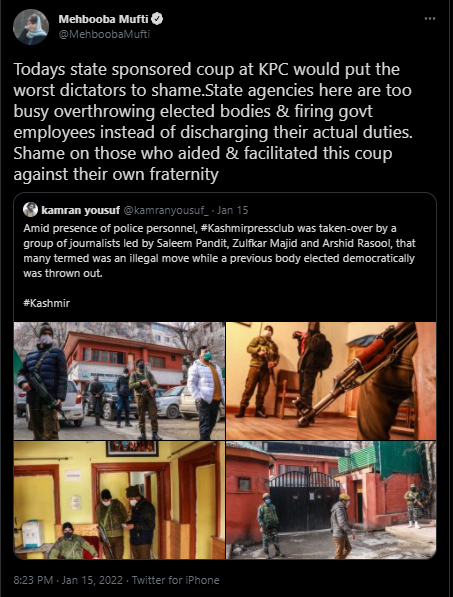
After the Indian parliament downgraded the erstwhile state of Jammu and Kashmir to a Union Territory and subdivided the state into two regions governed directly by New Delhi, journalists have increasingly been at the receiving end of police harassment and intimidation, severely limiting free reporting.
Police have detained, abused, harassed many journalists in some cases launching investigations under anti-terror laws.
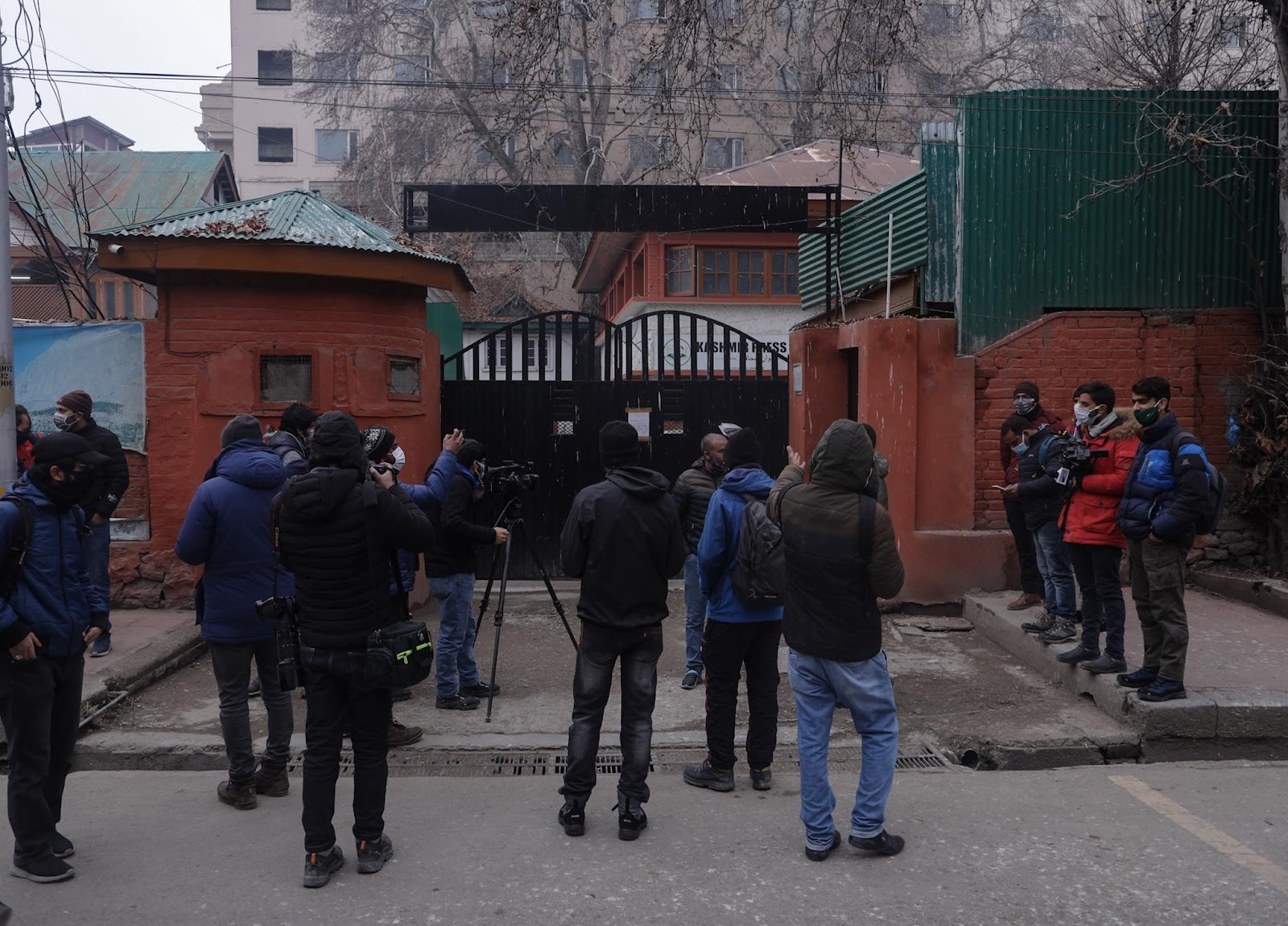
Shuja ul Haq, president of Kashmir Press Club in a statement said: “The club has been shut down on Sunday and this has anguished scores of its members who have been calling me. The KPC has continued to operate during the toughest times. I urge the LG of J&K to intervene for the welfare of members and ensure the institution is allowed to function democratically.”
The takeover has been termed “illegal and arbitrary” by 9 Kashmiri journalist bodies, including the elected Kashmir Press Club body.
Reporters Sans Frontières in a statement said, “We call on Jammu and Kashmir Lieutenant Governor Manoj Sinha to immediately restore the KPC’s licence and order its reopening. The society’s closure is clearly the outcome of a coup hatched at great length by the local government, which follows Prime Minister Narendra Modi’s orders. This undeclared coup is an Indian government insult to all the journalists trying to do their job in the Kashmir Valley, which is steadily being transformed into a black hole for news and information.”
“We need a place to work. Press Club was my workplace, where I filed my stories, talked to senior journalists with field experience, discussed story ideas with them, and received advice,” said Peerzada Muzammil, hoping that the out-of-bounds fortress reopens soon.
